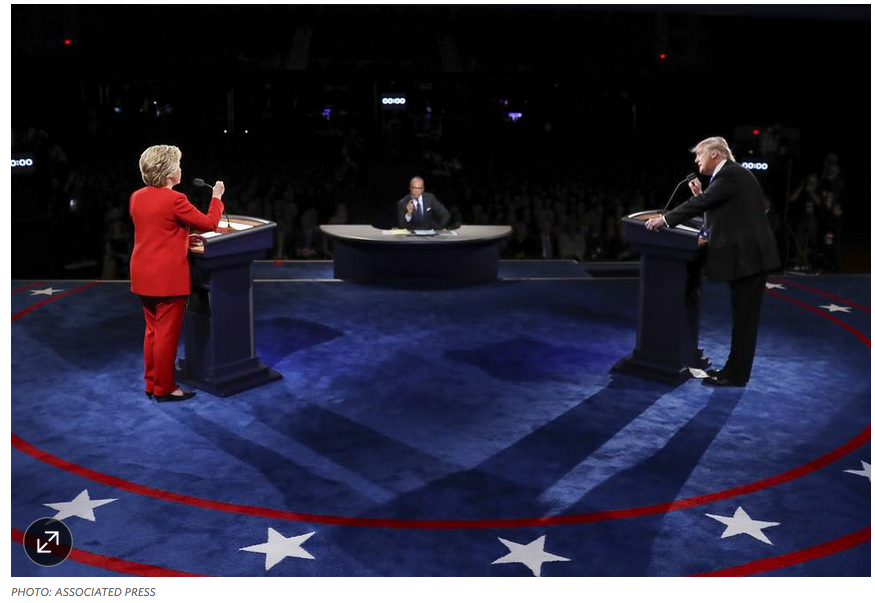Trump takes Clinton’s bait and underplays his best case for change.
The two most unpopular presidential candidates in modern history had their first debate Monday, and the best we can say is that they lived up to those expectations. Hillary Clinton offered a relentless assault on Donald Trump’s business record and qualifications to be President, but she offered little reason to believe she would lift the country out of its economic and psychological funk. Mr. Trump made the case for change, but in a blunderbuss fashion that will have voters wondering if he knows enough for the job.
There’s little doubt that Mrs. Clinton won on debating points. She can master a briefing book, and from the first answer she dumped most of it on Mr. Trump. The central argument of her campaign is to elect her because the New Yorker is “unfit” to be President, and her strategy was to taunt him with attacks on his business record that always seem to drive him to distraction.
And sure enough, Mr. Trump often took the bait, wasting time on details about his company’s history while barely going on offense against the Clinton Foundation. He also couldn’t resist a long, defensive explanation of his opposition to the Iraq war and why he hasn’t released his tax returns.
These columns warned Mr. Trump—and GOP voters—during the primaries that by not releasing his returns he was giving Democrats an opening to assert what he might be “hiding.” Mrs. Clinton took full advantage, offering a list of imagined horribles and even suggesting he might have paid “zero” taxes.
On policy Mrs. Clinton rolled out her list of seemingly endless programs that amount to the agenda of the last eight years, only more so. She has a government solution to every social and economic anxiety, and if you like the current economy she is your candidate.
That unhappy status quo remains Mr. Trump’s opening, yet he missed more chances than he hit. Offered a lay-up opportunity at the start on the economy, he sounded a Donny-one-note on trade—as if cutting imports is the magic cure for 1% growth. He eventually got around to touting his tax cut, albeit with few specifics, but he barely mentioned the burden of regulation.
The Republican did better on race and crime, showing a sympathy on the question while calling for “law and order.” He also had a better grasp of the legal history of New York’s “stop and frisk” policing than moderator Lester Holt, who took the liberal line that it was declared “unconstitutional.” That ruling was by a lower court judge whose bias was rebuked by an appellate court, and then New York’s new mayor dropped the city’s appeal.
Speaking of Mr. Holt, he clearly took to heart the liberal media assault on his colleague Matt Lauer three weeks ago, as his questions and fact-checking tilted in Mrs. Clinton’s direction. Mr. Holt challenged Mr. Trump on his dubious claim that he opposed the Iraq war before the invasion, but he didn’t challenge Mrs. Clinton on her false claim that George W. Bush decided the U.S. should pull out of Iraq in 2011. If you think we’re wrong, watch who praises Mr. Holt this week.
For all of Mr. Trump’s substantive weaknesses, the challenger did score points by portraying Mrs. Clinton as an architect of America’s current malaise. His taunt that she has been around “for 30 years” strikes home. The central question in the election is coming down to whether an American majority that wants a change in direction is willing to take the risk on Mr. Trump to deliver it. It’s still a question after Monday night.
Source: wsj.com
 Listen Online
Listen Online Watch Online
Watch Online Find a Station in Your Area
Find a Station in Your Area










 Listen Now
Listen Now Watch Online
Watch Online
